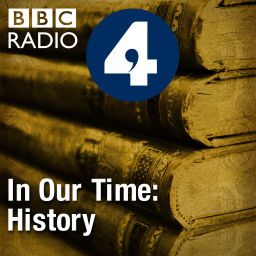
<p>Director of the British Museum, Neil MacGregor, narrates 100 programmes that retell humanity's history through the objects we have made.</p>
Language
🇺🇲
Publishing Since
1/18/2010
Email Addresses
1 available
Phone Numbers
0 available

December 25, 2020
<p>Ten years on from the ground-breaking Radio 4 series, "A History of The World in 100 Objects", former director of the British Museum Neil MacGregor looks back at the impact of the series, on how storytelling in museums has changed over a turbulent decade and asks which object from 2020 would best encapsulate our modern age.</p><p>Producer: Paul Kobrak</p>

October 22, 2010
<p>The very last episode in Neil MacGregor's history of humanity as told through the things that time has left behind. The director of the British Museum in London has spent the past year choosing objects from the museum's vast collection to represent a two million year story of humanity. Throughout this week he has been with objects that that speak of the great shifts in human organisation and thinking in the modern world. Here he describes the object that he has picked as his last; it's a solar-powered lamp and charger that he believes can revolutionise the lives of poor people around the globe. The portable panel can provide up to 100 hours of light after just 8 hours of direct sunlight. It can also charge mobile phones and help bring power to millions of people around the world who have no access to an electrical grid. Simple, cheap and clean - this is revolutionary technology for the future. Professor Nick Stern, the expert on the economics of climate change, describes the potential impact of new solar technology - and we hear examples of how the technology is being adopted in Africa and India. Neil explains why he has chosen a solar-powered lamp and charger as his final object - with examples of how it is already being used in rural Bengal and urban Kenya. </p><p>Producer: Anthony Denselow </p>

October 21, 2010
<p>Neil MacGregor's history of the world as told through things. Throughout this week he is examining objects that speak of the great shifts in human organisation and thinking in the modern world - objects that raise questions about human lives, the environment and global resources. So far this week he has chosen things that deal with political and sexual revolution and that confront the disaster of global arms proliferation. In today's episode he considers the morality of modern global finance and its implication for the future. He tells the story with a credit card that is compliant with Islamic Sharia law - what does that mean and how does it work? He talks to the Governor of the Bank of England, Mervyn King, and to Razi Fakih of the HSBC bank.</p><p>Producer: Anthony Denselow </p>

BBC Radio 4

BBC Radio 4

Immediate Media

BBC Radio 4

BBC World Service

BBC Radio 4

BBC World Service

BBC Radio 4

BBC Radio 4

BBC Radio 4

BBC World Service

BBC World Service

BBC Radio 4

BBC Radio 4

BBC Radio 4
Pod Engine is not affiliated with, endorsed by, or officially connected with any of the podcasts displayed on this platform. We operate independently as a podcast discovery and analytics service.
All podcast artwork, thumbnails, and content displayed on this page are the property of their respective owners and are protected by applicable copyright laws. This includes, but is not limited to, podcast cover art, episode artwork, show descriptions, episode titles, transcripts, audio snippets, and any other content originating from the podcast creators or their licensors.
We display this content under fair use principles and/or implied license for the purpose of podcast discovery, information, and commentary. We make no claim of ownership over any podcast content, artwork, or related materials shown on this platform. All trademarks, service marks, and trade names are the property of their respective owners.
While we strive to ensure all content usage is properly authorized, if you are a rights holder and believe your content is being used inappropriately or without proper authorization, please contact us immediately at [email protected] for prompt review and appropriate action, which may include content removal or proper attribution.
By accessing and using this platform, you acknowledge and agree to respect all applicable copyright laws and intellectual property rights of content owners. Any unauthorized reproduction, distribution, or commercial use of the content displayed on this platform is strictly prohibited.